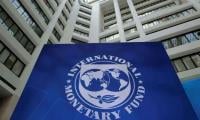With the money she earns cleaning houses in the morning and an office at night, Virgen Elena Pupo, a 47-year-old Cuban migrant, has managed to raise her family in Washington, DC, but has not been able to help her parents in Holguín, Cuba. She is separated from her parents by more than 1,246 miles. In Cuba’s eastern region, Holguín has been hit hard by an increase in Covid-19 cases, but Pupo cannot visit or send money to her parents due to the restrictions on flights and remittances from the United States as a result of former US President Donald Trump’s policies that President Joe Biden has continued.
On October 27, 2020, a week before the US presidential elections took place on November 3, Trump issued his final sanction against the island. Trump included Cuban financial company Fincimex, Western Union’s main partner in the country, in the Cuban Restricted List. The pretext was that it belongs to the Cuban business corporation, Grupo de Administración Empresarial SA.
This measure cut off the channels for sending remittances to Cuba, and Pupo’s elderly parents have not been able to receive any help amid the pandemic as a result of this move.
Fincimex issued a statement on August 27, 2021, announcing delays in the delivery of remittances that arrive in Cuba from third countries due to the difficulty of finding financial institutions willing to authorize operations. The inclusion of this company in the list of restricted entities by the US Treasury Department “continues to generate fears in the international banking sector about accepting operations directed to… [Fincimex] and tendencies to limit the scope of these transactions,” said the Fincimex statement.
The US policy relating to remittances goes against all logic. Remittances have come to the rescue of families affected by the coronavirus all over the world. According to the World Bank, money sent by migrants to their families in “low- and middle-income countries surpassed the sum of FDI [foreign direct investment] ($259 billion) and overseas development assistance ($179 billion) in 2020.”
For example, remittances grew historically in Mexico in the first six months of 2021, as La Jornada recently reported. They reached $23.6 million, which is 22 percent more than the remittances received during the same period in 2020.
“As Covid-19 still devastates families around the world, remittances continue to provide a critical lifeline for the poor and vulnerable,” said Michal Rutkowski, global director of the Social Protection and Jobs Global Practice at the World Bank. The regular remittances that poor Latin American migrants send to their families have become vital to many of the region’s economies. Generally, it’s the working poor who send small sums of money, sometimes up to eight times a year, usually sending more money than they earn during the year. For years, remittances have been one of Mexico’s main sources of foreign exchange, and remittances form close to or more than 20 percent of the gross domestic product of Honduras, El Salvador and other countries in Central America. They protect millions of people.
Excerpted: ‘The Money That Never Arrives in Cuba’
Counterpunch.org
Representational image. — APP FileOnce again there is debate surrounding the National Finance Commission Award,...
Pakistani human rights activist and Supreme Court lawyer Asma Jahangir died on February 11, 2018. — AFPAn annual...
Representational image. — APP FileThe meltdown of Pakistan’s economy needs immediate attention. Political unrest...
A health worker administers polio vaccine drops to a child during a door-to-door polio vaccination campaign in Lahore,...
Armed militants of the banned Tehreek-e-Taliban Pakistan pose for a photograph in Orakzai Agency. —...
An aeroplane of the national flag carrier of Pakistan is seen in this file photo. — AFPWhile Pakistan considers...







